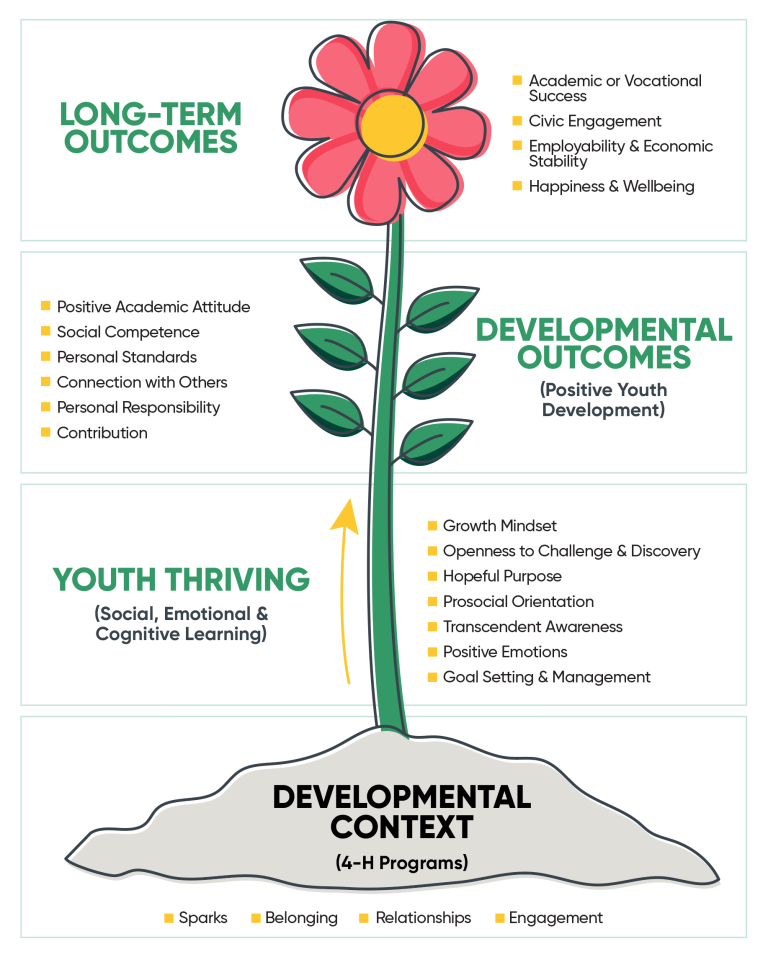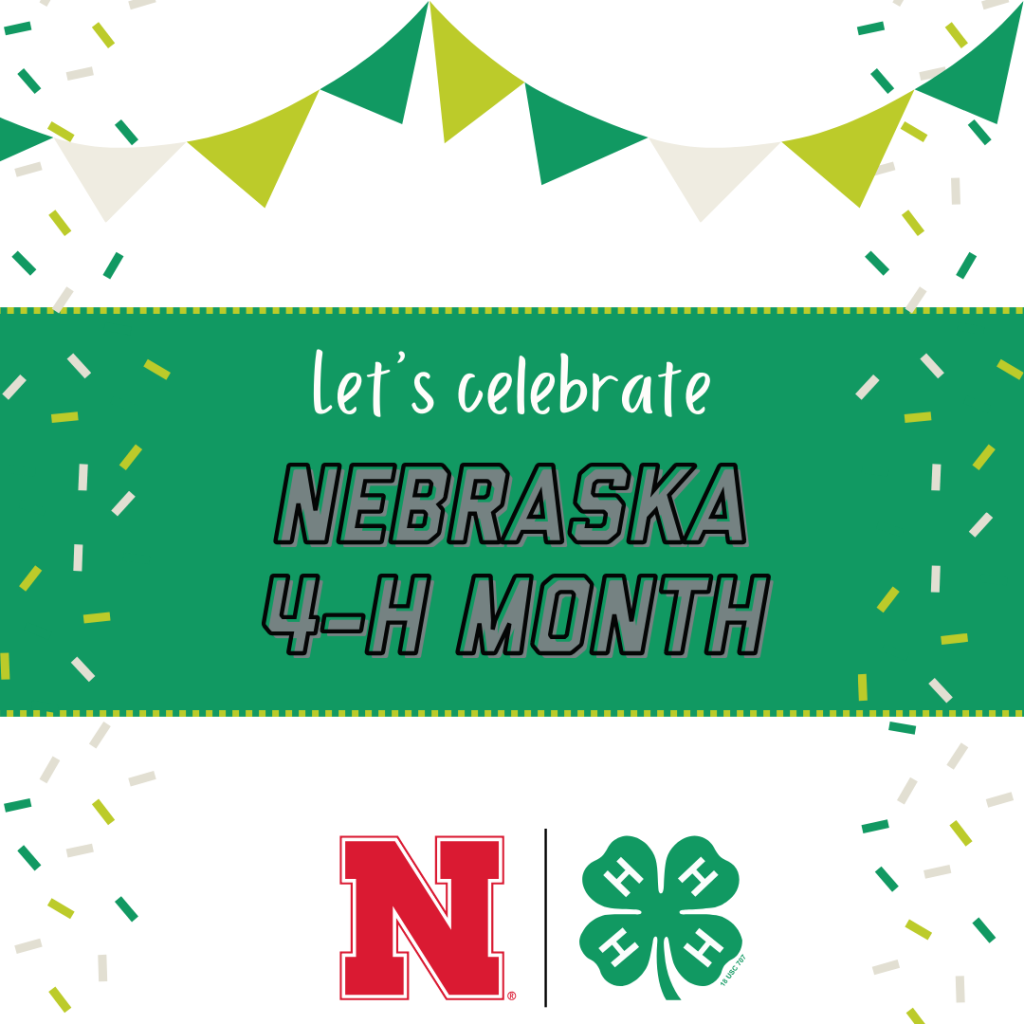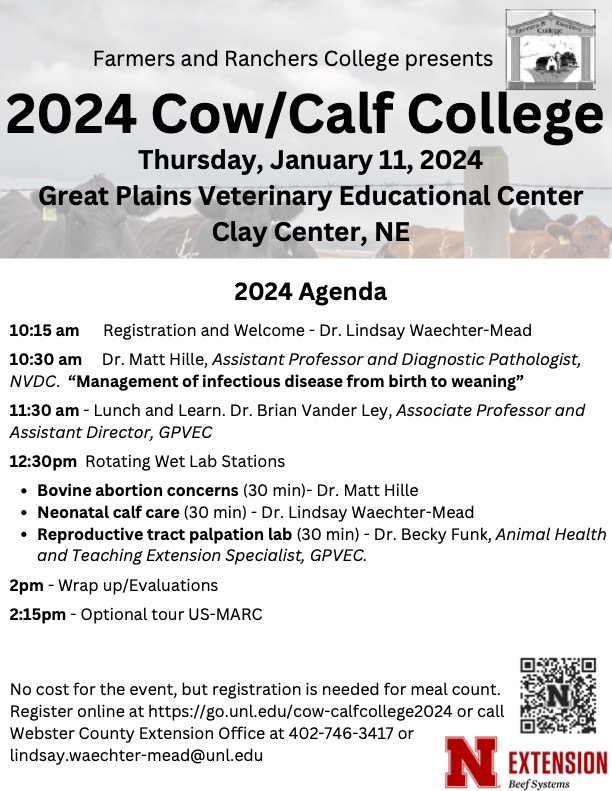The next several articles I will be sharing will focus on the 4-H Thrive Model which focuses on ensuring high-quality 4-H programs for youth and positive youth development. In the 4-H Thriving Model, this process of positive youth development is described by seven indicators of thriving: openness to challenge and discover, growth mindset, hopeful purpose, pro-social orientation, transcendent awareness, positive emotionality, and self-regulation through goal setting and management. This first article focuses on volunteers who are the heart of a high-quality 4-H program.
4-H Volunteers Help Youth Thrive
Volunteers have been the long-time champions for the 4-H program, delivering 4-H experiences to youth across the nation for decades. Volunteers bring invaluable skills and resources to their role, dedicating hours to teaching youth new skills and helping them grow as leaders. It is certainly not difficult to visibly see a volunteer’s impact in this way.
However, there are many other ways in which volunteers help youth thrive that are not as easy to visibly see. Volunteers, specifically 4-H club leaders, undoubtedly are a key part of the 4-H program and the impact on youth for years to come. But, how? This happens through developmental relationships, which are close connections through which young people discover who they are, cultivate abilities to shape their own lives and learn how to engage with and contribute to the world around them.
Developmental relationships between youth and adults are important aspect of the 4-H program. Research shows that the relational quality between the 4-H leader, volunteer and member is connected to positive youth development. 4-H volunteers foster a developmental relationship with youth when they express care, challenge growth, provide, support, share power and expand possibilities.
Some of the ways 4-H volunteers build a developmental relationship with youth is through a variety of visible approaches. Examples include, but are not limited to, showing youth they enjoyed spending time together, making youth feel known and valued, being someone, youth can trust and praising youth for their efforts and achievements. Implementing these approaches to having a developmental relationship with youth encourages youth to know their 4-H club leader cares about them and their success.
Healthy developmental relationships grow over time to move past a mainly adult-driven relationship to shifting the power to the youth. In addition, as the relationship between the 4-H leader and the youth continues to grow and foster a deeper connection, the impact on the youth deepens as well.
Thank you, 4-H volunteers, for creating 4-H experiences for youth to experience new skills and helping them grow as leaders, and ultimately finding their spark in life!
This article was written by Jill Goedeken, Nebraska Extension Educator.







